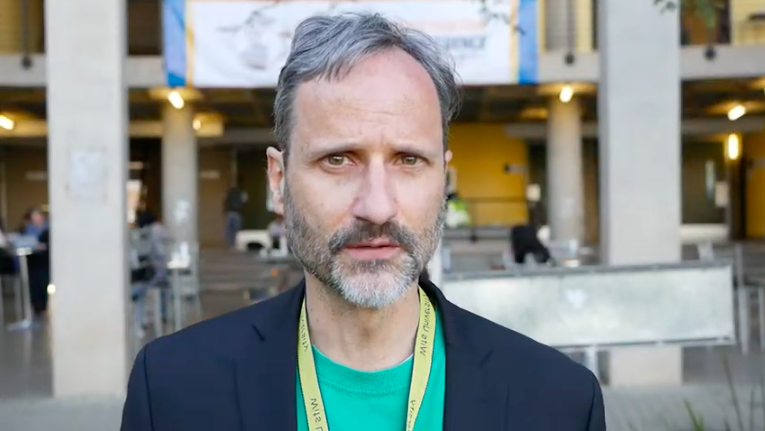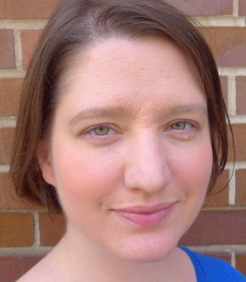

Image: Screenshot (GIJC17)
This Investigative Journalism Class Launches Careers and Creates Change
Read this article in
Editor’s Note: GIJN extends its reach worldwide through a network of extraordinary teachers and trainers, many of whom have worked with us for years. One of our favorites is NBC News’ Andrew Lehren, who has represented GIJN at workshops from Kathmandu to Kiev. When we saw that CUNY — the City University of New York, where he teaches — ran a profile, we couldn’t resist reposting it for our global community.
Every time Andrew Lehren walks into his investigative journalism class — the intensive capstone course he teaches to students in their final semester at the Craig Newmark Graduate School of Journalism — he sets out to impart the skills he wishes he had been offered as a young journalist.
His students learn to uncover untold stories, to evaluate whether they’re significant enough to pursue, to access the data and records that make them meaningful, and to find the people and human stories that illustrate their impact.
And they do it all on the ground, reporting out real stories with real-world power. In his eyes, Lehren says, it’s the kind of journalism that matters most. “We need more diggers,” he says. “We need more people who will have the tenacity to come up with the stories that our society is not seeing, that may just be lying there in plain sight.”
By the time graduates of the course start their next job, they are prepared to create their own meaningful work and advocate for it — an essential skill in busy newsrooms where early-career journalists must shape and seize their own opportunities. “Generally, the people who do investigative work are the ones who pitch their own ideas and are able to execute,” Lehren says. “I really push students to find their own stories, and challenge them to find the best story.”
This approach, which puts special emphasis on teaching students to source, pitch, and refine their ideas, has led to dozens of student exposés that have uncovered systemic problems, revealed abuses of power, and highlighted injustices.
From recounting how NYPD officers stripped of their credentials move on to other positions of power to revealing that the US Department of Veterans Affairs is breaking its own rules meant to protect veterans from opioid addiction, many of the projects have gone on to be published or broadcast by major news organizations. A number of articles completed in the class have won IRE Awards or prompted responses from public officials.
Lehren has been teaching and refining the course since the school opened 15 years ago. And it has become a signature offering for the journalism school, which designs its programs around hands-on experiences. Throughout the three-semester master’s degree program, students put what they’re learning into practice in a variety of reporting assignments around New York City. All of them complete a paid newsroom internship before graduation.
When she entered the investigative journalism class in 2015, Kanyakrit Vongkiatkajorn wasn’t planning on focusing her career on investigative work. By the end of the semester, that had changed. “That’s the kind of enthusiasm that Andy inspires,” she says. “There’s a feeling he gives you that you can accomplish this, you can do this, and he’ll provide you the support and tools to get there.”
Lehren, who has had a distinguished investigative career at The New York Times and NBC News — and who has contributed to both Pulitzer Prize-winning and Pulitzer Prize-finalist investigations — frequently brought in colleagues and former students to talk to the class about their work, Vongkiatkajorn recalls. Now, she recommends the class to any Newmark J-School student she speaks with, no matter their area of focus.
“Andy is just an incredibly amazing professor,” Vongkiatkajorn says. “He is someone who has so much experience, but is also just incredibly enthusiastic. He really believes in you and wants you to succeed, and constantly encourages you to find your story, sharpen your angle, figure out your pitch.”
Vongkiatkajorn’s class project — a collaboration with other students examining the misuse of funds in a federal refugee assistance program — was a finalist for an IRE Award for student work. To complete the piece, the students received a grant from the journalism school to visit a Syrian refugee community in Michigan. Ultimately, Vongkiatkajorn says, the project and the skills she learned in the course were key to helping her land a fellowship at Mother Jones, where she later became a staffer. She is now a senior subscriber engagement editor at The Washington Post.
Lehren begins working with his students several months before the class officially begins, and continues long after it has ended. He reaches out to them early, inviting them to work with him to file public records requests in advance if they have an area they’re interested in focusing on. After the class is over, he stays in touch to provide guidance and advice as they work to place their pieces with major news outlets.
Students enter the course already in command of a wide array of research and investigation skills. In their first year, all students take a class in advanced investigative research techniques, where they learn to use records to uncover the truth about city agencies, court cases, and public companies. They also learn to use social media and open-source intelligence techniques to investigate individuals.
One of the most defining elements of Lehren’s investigative journalism course is his commitment to fostering collaborations. By encouraging students to team up on projects, Lehren enables them to cover far more ground — knocking on every door and analyzing every data file.
“In that class I really came to understand that investigative journalism is a team sport; that you really have to learn to work with other people on big stories to get them done,” says Hannah Rappleye, whose longtime investigative partnership with Lisa Riordan Seville, launched in Lehren’s class, won them the 2018 Stephen B. Shepard Prize for Investigative Reporting.
These days, Rappleye’s collaborators include Lehren himself. She helped to recruit him away from The New York Times to NBC News, where she’s a reporter with the investigative unit and where he now serves as a senior editor. The work Lehren is doing there requires tenacious diligence, passion, and humor — all in ample supply for a man who spends his spare time as a running guide for a blind marathoner.
But nothing beats what he calls the “terrible thrill in the chase” of stories that reveal wrongdoing. “Investigative stories can change the tenor of conversations, can highlight problems, can lead to change,” Lehren says. “Finding that story, discovering that story, reporting out that story with a team of reporters … it’s one of the most rewarding things you can do in journalism.”
This profile was originally published on the website of the CUNY Graduate School of Journalism in New York City. It republished here with permission.
Additional Resources
Investigative Journalism Manuals
Data Journalism Training Courses
Donors Invest Millions in Investigative Journalism Centers at US Universities
Samantha Gross is a former journalist at the Associated Press, and an entrepreneurial journalism fellow at the Tow Knight Center for Entrepreneurial Journalism at the CUNY Graduate School of Journalism. She is also founder of Story Tour, “an in-person magazine” that does on-the-scene storytelling in New York City.










